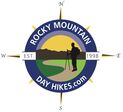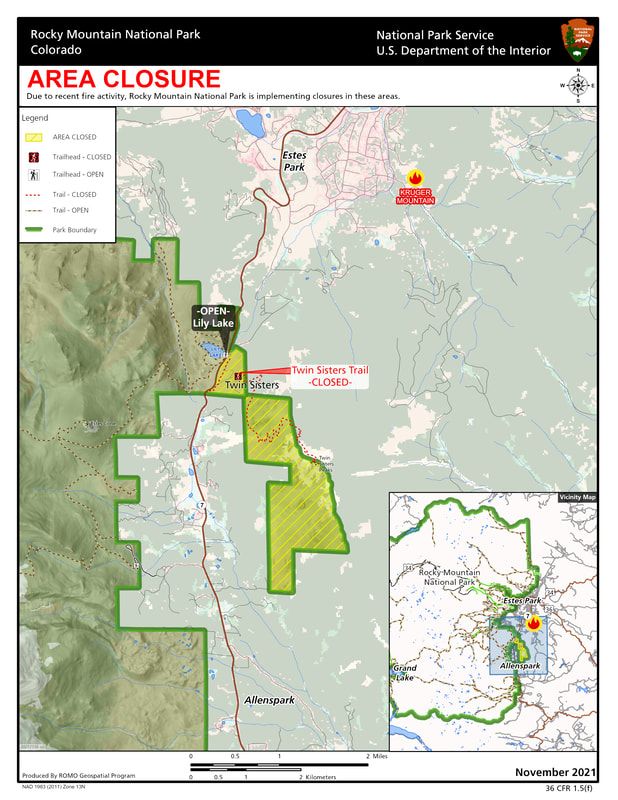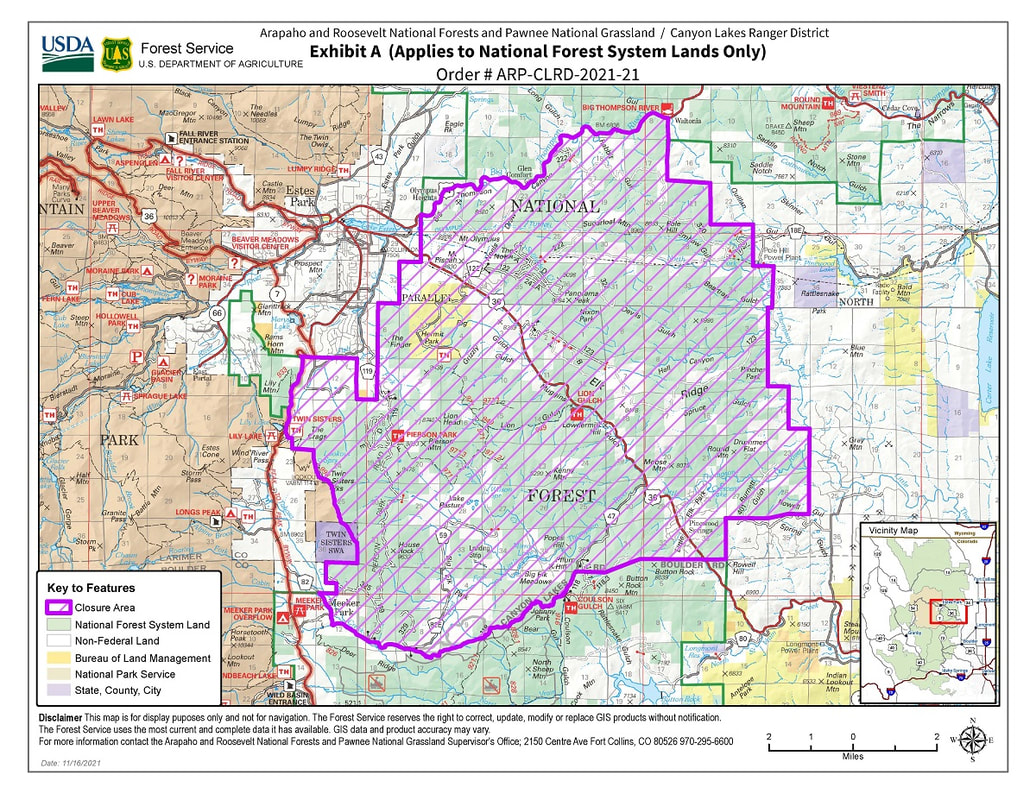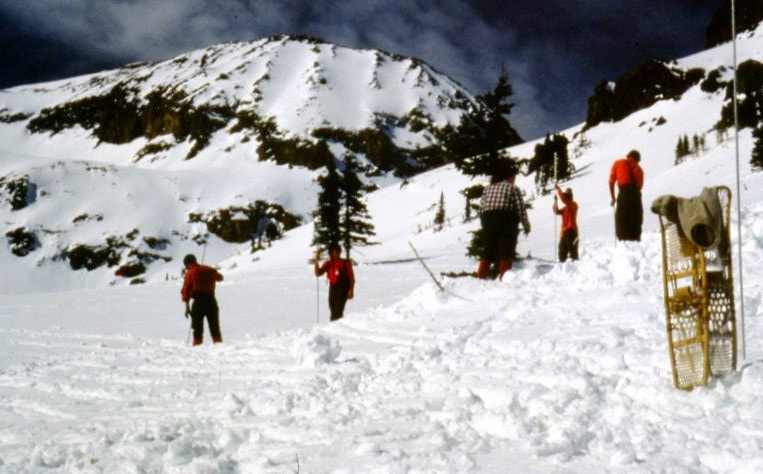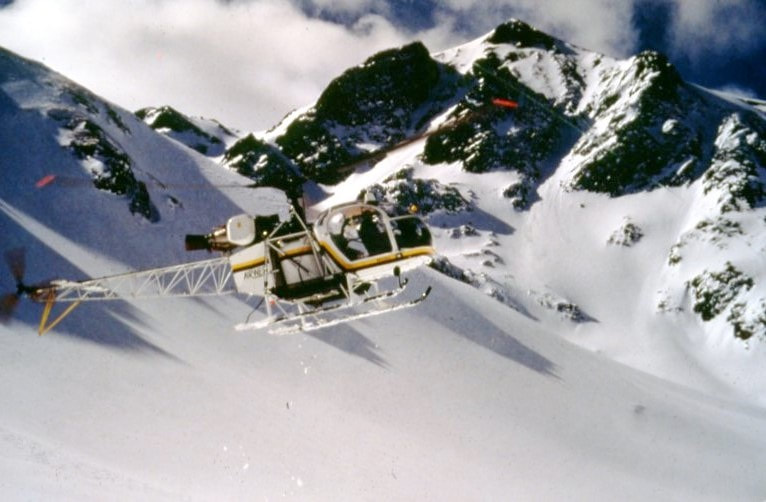|
Rocky Mountain National Park is proposing a change in its current entrance fees.
The park is proposing a 5-dollar increase to the Daily Vehicle Entrance fee. This pass would increase from $25 to $30 for a day pass to Rocky Mountain National Park. There are no proposed changes to the park weekly pass ($35 per week), park annual pass ($70 per year), or any of the interagency American the Beautiful passes. The park is also proposing increases to front-country campground overnight fees:
These proposed campground fee increases are based on comparable fees for similar services in nearby campgrounds. The proposed fee increases are necessary for Rocky Mountain National Park to improve and maintain high-quality visitor services. While basic park operations are funded by direct appropriations from Congress, the recreation use fees collected by the park are used to support new projects and the ongoing maintenance of park facilities that directly enhance the visitor experience. The Federal Lands Recreation Enhancement Act (FLREA) is the legislation that allows the park to collect entrance and amenity fees. This law allows parks like Rocky Mountain National Park to retain 80 percent of the fees collected in park for use on projects that directly enhance the experience of park visitors. The remaining 20 percent of all collected fees is distributed for use throughout the National Park System. Some of the projects funded through the collection of entrance station and campground fees at Rocky Mountain National Park include:
Public engagement is an important part of the park’s planning process. Rocky Mountain National Park is accepting public comments on the proposed fee increases. Please submit all comments to: https://parkplanning.nps.gov/RMNP_FEES_2022 Comments may also be submitted via mail to: Rocky Mountain National Park Office of the Superintendent 1000 US Hwy 36 Estes Park, CO 80517 Please be advised, before including your address, phone number, e-mail address, or other personal identifying information in your comment, you should be aware that your entire comment – including your personal identifying information – may be made publicly available at any time. Although you can ask in your comment to withhold your personal identifying information from public review, we cannot guarantee we will be able to do so. All public comments on the proposed fee increases will be accepted through January 7, 2022. For additional information on Rocky Mountain National Park, visit www.nps.gov/romo or call the park’s Information Office at (970) 586-1206.
2 Comments
RMNP Update: November 16, 2021
In an abundance of caution, due to the Kruger Rock Fire, Rocky Mountain National Park, in conjunction with the US Forest Service, is closing the Twin Sisters area. This closure includes the Twin Sisters Trail and parking area. The Lily Lake area within Rocky Mountain National Park remains open. Included is a map of the closure in the Twin Sisters area within Rocky Mountain National Park as well as a map from the US Forest Service of their closure area. Skeletal remains found on the west side of Rocky Mountain National Park are believed to be those of Rudi Moder, a 27-year-old man from West Germany, who disappeared in the park 38 years ago.
On February 13, 1983, Rudi Moder departed the Zimmerman Lake Trailhead on Colorado Highway 17 near Cameron Pass for a two-to-three-night ski mountaineering trip over Thunder Pass and into Rocky Mountain National Park. Moder, a West German living in Fort Collins, was described as an experienced winter mountaineer. On February 19, Rudi was reported overdue by his roommate. Search operations and further investigation were initiated, and search teams were in the field early on February 20, 1983. Over a foot of snow fell in the Never Summer Mountains on February 19, hampering search efforts in finding tracks and other clues. A food cache belonging to Moder was found at the mouth of Box Canyon, in the northwest corner of the park. A snow cave, with Moder’s sleeping bag and other gear and items, was found near the food cache. These were the only major clues discovered during the four-day extensive search. Because Rudi’s point last seen was outside of Rocky Mountain National Park at the Zimmerman Lake Trailhead, the extensive search efforts were coordinated with Larimer County Search and Rescue and Rocky Mountain National Park Search and Rescue Teams. Search efforts occurred mainly in the Box Canyon and Skeleton Gulch areas, including Mount Richthofen. This included ground searchers on skis and snowshoes as well as aerial search operations. Searchers, including an avalanche search dog and handler, also focused efforts in avalanche terrain. The extensive search efforts continued for four days and ended on February 23, however there were numerous search efforts by ground and air that occurred later that spring and summer. In mid-August of 2020, skeletal remains were discovered by a hiker in the Skeleton Gulch area, near avalanche debris. The area the remains were found were part of the initial search area. Rangers conducted an initial investigation at the scene but could not complete the investigation due to priorities shifting to the Cameron Peak Fire closing the area, followed by the East Troublesome Fire. Snow then covered this high elevation area above 11,000 feet. This summer, park rangers further searched the scene and found skis, poles and boots, along with remains of personal items believed to belong to Moder. The FBI Evidence Response Team assisted park rangers with the recovery of remains. The Grand County Coroner’s office attempted to confirm identification through dental records however, the results were inconclusive. Officials have worked extensively with the German government for repatriation, family notification and dental record analysis. In the decades following Moder’s disappearance, search efforts continued periodically by Rocky Mountain National Park staff and Larimer County Search and Rescue Teams. The discovery and recovery of Rudi Moder’s remains closes out a nearly four decade long cold case at Rocky Mountain National Park. |
RMNP UpdatesPress Releases from Rocky Mountain National Park and the Rocky Mountain Conservancy.
Archives
September 2025
|
© Copyright 2025 Barefoot Publications, All Rights Reserved
